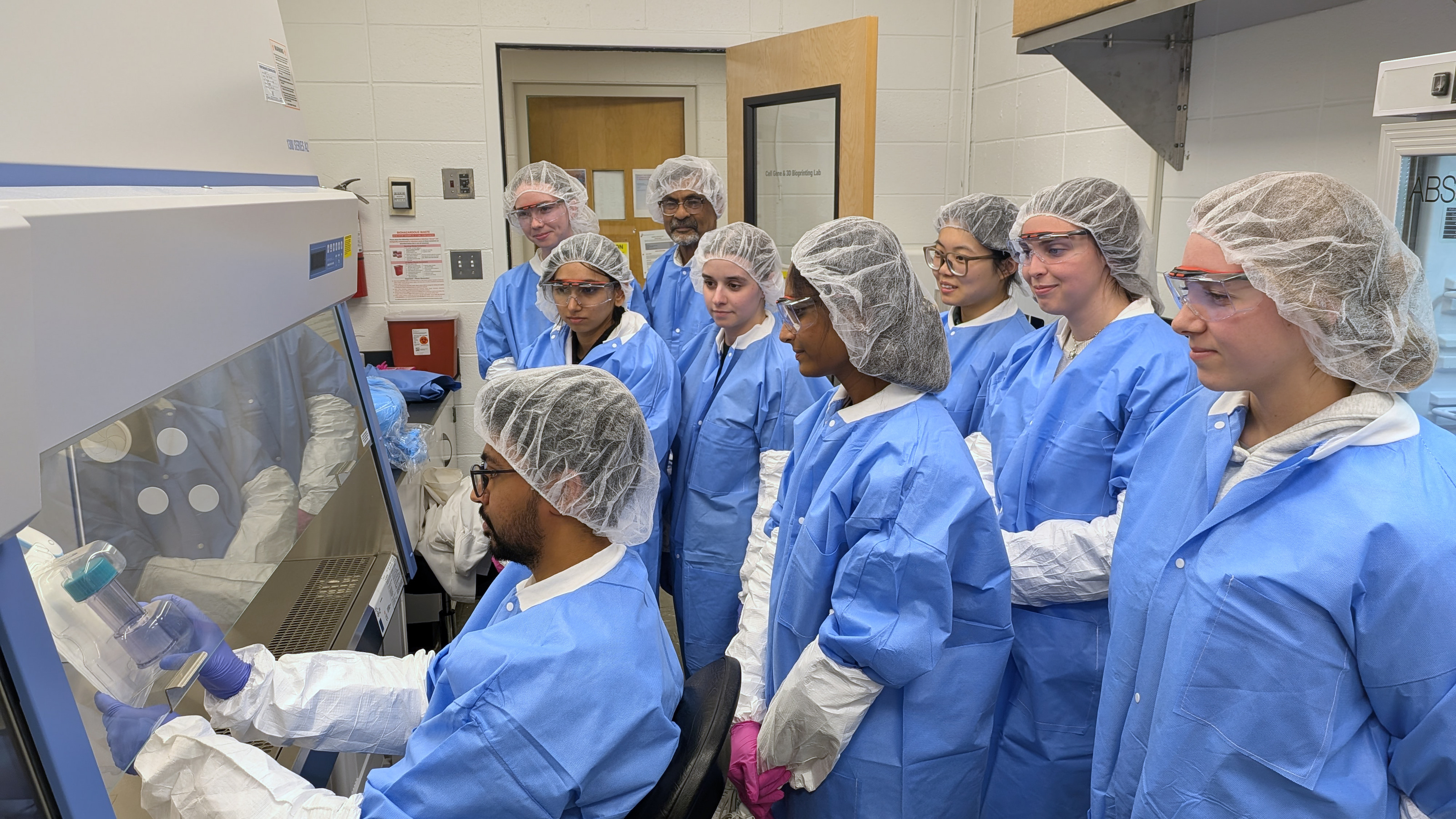Exploring the Science of Sleep
Faculty-student research group publishes paper on the metabolic effects of sleep loss

According to a new paper published by Associate Professor of Biology Jennifer C. Tudor, PhD and her team of student researchers, losing sleep may lead to much more than your run-of-the-mill drowsiness.
The paper, published in Science Signaling in April, characterizes sleep loss as a metabolic disorder.
Because the body typically refuels during sleep, extended periods of sleep loss impair the refueling of energy stores, which means that “metabolically active cells shunt energetic resources away from those processes that are not acutely essential, like memory formation, to support cell survival,” according to the group’s analysis.
“We know sleep loss in humans is linked to things like type 2 diabetes and cardiovascular disease, and sleep disruptions are even linked to neurodegenerative disorders,” says Jordan McCarthy, BS '24, a chemical biology alumna and collaborator on the project. “Looking at all the data, it’s remarkable how similar the effects are across species, from flies to humans. If you’re not sleeping, it can lead to major systemic problems and ultimately neurodegeneration.”
Co-authored by McCarthy and biology alumnae Sierra Feeney, BS '25, and Cecilia Petruconis, BS '23, the paper functions as a literature review of existing data, synthesizing nearly 300 sources to catalogue the findings across multiple fields of study.

“There are hundreds of references in the paper, and we read a lot more than that to get started,” says Feeney, who will begin her PhD studies at the University of Iowa in the fall. “There are conclusions that can only be drawn when you’ve read them all together.”
Tudor, who recently spoke on the Science Magazine podcast about the article, hopes the study will engage with “big picture” ideas about sleep science, combining psychological and biological points of view.
“Sleep has historically been studied by psychologists, but it’s far more than what’s happening in the brain,” Tudor explains. “The purpose of the review article is to try to pull back and give a much broader view of what sleep can do.”
The paper has already made a splash in the academic world — it received over 3,600 downloads in under two months.
“This paper has gotten a lot of traction, and it’s mostly because of the hard work that the students put in to do such a deep dive on the topic,” Tudor says. “There are very few papers that dive in as deeply as ours did.”
“Sleep has historically been studied by psychologists, but it’s far more than what’s happening in the brain."
Jennifer C. Tudor, PhD
associate professor of biologyThe team has been collaborating on the paper for over a year. The partnership began with Science Signaling expressing interest in sleep and energy, one of Tudor’s long-time research interests. She brought on Feeney, who was an undergraduate biology student at the time, as well as McCarthy and Petruconis, who had moved on to PhD programs at the University of Michigan and the University of Pennsylvania, respectively.
Both have found the experience helpful as they embark on PhD journeys, which require designing their own research as part of a thesis project.
“In order to develop a thesis, you have to read a ton of literature, identify a gap in the research, and demonstrate how you would solve it,” McCarthy explains. “Doing a review like this is really good practice — not only is the work we’ve done important to the field, but it’s important to my development as a scientist.”
Petruconis, who is entering her third year of the pharmacology program at Penn, agrees.
“We all really pushed each other to be better scientists and think critically throughout the process,” she says. “It’s great practice to really delve into the literature and understand what it means to have a grasp on a particular area of the field.”



